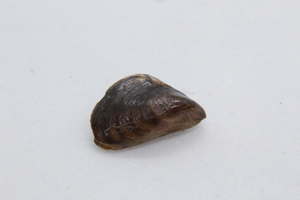Quagga mussels found in the River Trent and Rutland Water
Members of the public are being asked to help out to limit the spread of quagga mussels in the East Midlands.

A single quagga mussel
- Invasive non-native species found in East Midlands
- River and reservoir users urged to follow ‘check, clean, dry’ procedures
- Environment Agency and Anglian Water working together to identify spread
The invasive non-native species has recently been found in the River Trent near Newton-on-Trent, Lincolnshire, as well as in Rutland Water. People using the river or reservoir are now being urged to follow ‘check, clean, dry’ procedures to try to prevent the spread.
The Environment Agency has increased its monitoring across the region’s rivers to establish the extent of the problem and is working with Anglian Water and the GB Non-Native Species Secretariat to agree an appropriate bio-security response. While quagga mussels do not pose any immediate direct threat to water quality, animals or people, they do spread rapidly and can block pipes and water based assets resulting in significant future maintenance costs.
Quagga mussels were first recorded in the UK in 2014 and have previously been found in the Thames catchment. It is not known how they arrived in the Trent or Rutland Water.
Geoff Craig, area environment manager for the Environment Agency, said:
Unfortunately, further spread of the quagga mussels is highly likely, but we can slow down the spread. We urge all water users in the affected areas to follow the required biosecurity procedures of ‘check, clean, dry’ whenever working or engaging in leisure activities in or near the water.
Find out more about Check, Clean, Dry.
ٔ